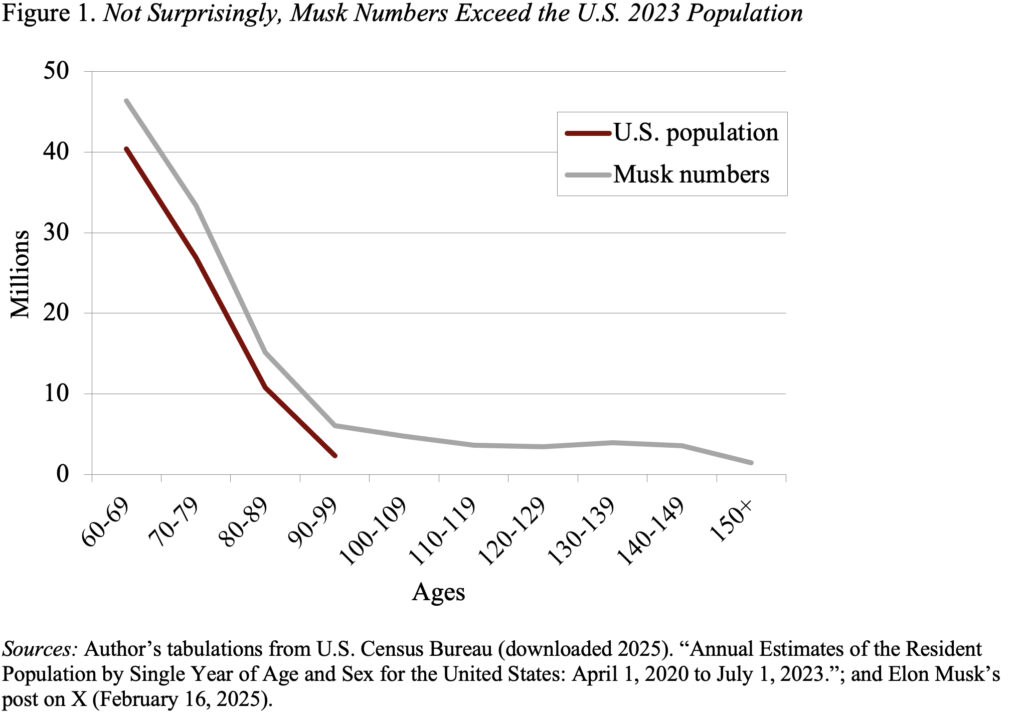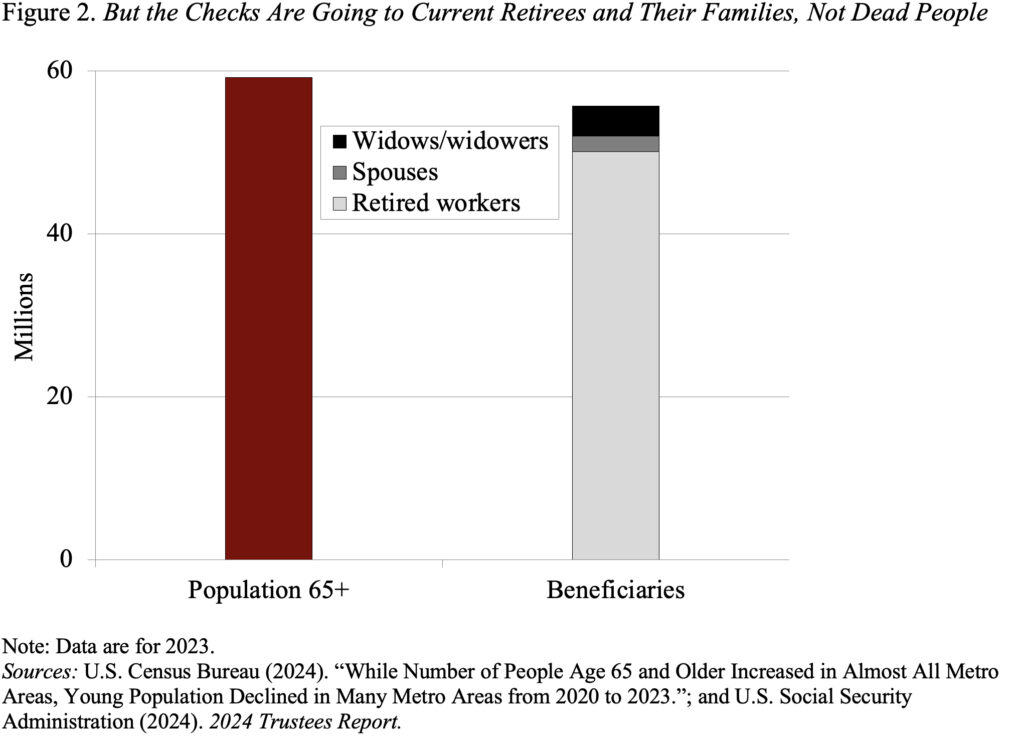
150-Year-Olds Aren’t Getting Social Security – Here’s a Better Task for DOGE
Alicia H. Munnell is a columnist for MarketWatch and senior advisor of the Center for Retirement Research at Boston College.
The claims of widespread fraud don’t hold water.
Elon Musk, on the “Joe Rogan Experience,” reiterated the claim that the Social Security numbers of 20 million dead people are being used to steal $100 billion in benefits each year. He keeps repeating this so-called example of fraud, waste, and abuse that he purportedly found at the Social Security Administration. His search of the agency’s database had turned up millions of people ages 100 and older. His apparent reasoning is that most of these people are certainly dead, and therefore a lot of fraud was occurring by paying benefits to dead people.
To add weight to his story, Musk shared his numbers on Twitter. Indeed, his minions found about 20 million individuals with ages over 100, all of whom presumably were dead and receiving benefits.
Tuesday night, President Trump repeated these unproven claim in his address to Congress.
The Social Security database includes all individuals who ever paid into the system or received benefits. It makes sense to have a complete record of the program’s historical activity. The Musk team asked the machine to scan the database and identify all those who did not have a date of death associated with their record, and that query netted the numbers Musk shared.
Two issues are important here. First, it is not surprising that the Musk numbers exceed the U.S. population (see Figure 1). Indeed, more than a decade ago a 2015 audit report from the agency’s Inspector General identified the lack of death data as a problem that should be addressed. However, given the manpower required to fix the historical record and Social Security’s limited budget, the agency decided to focus on improving the system for current and future workers rather than completing historical documentation. Hence, while it would be nice if each record had a date of death, many do not.

Second, just because records of very old people exist without a death date, that does not mean that these dead people are receiving checks. Two pieces of evidence support that contention. The most important is that the number of checks going out for retirement and disability benefits are just what one would expect. For example, the population of those ages 65+ is 59 million, and the number of checks going out to retired workers, their spouses and their widow/widowers is 56 million (see Figure 2). If checks were also going out to 21 million old dead people, the total number of payments would far exceed the population 65+.

On a more micro level, the 2015 Inspector General’s report noted that while the examiners had found millions of people in the system who were likely dead, they identified only 13 checks going to beneficiaries who were likely 112+. In fact, a handful of people do live to that age.
Of course, any organization that pays out $1.4 trillion each year to retired and disabled individuals and their families will inevitably make mistakes. The Social Security Advisory Board, a group of outside experts, regularly issues recommendations to improve the accuracy of the system’s payments, such as having the Treasury Department collect the data on deaths.
It’s important, however, to keep in mind the magnitude of Social Security’s errors. According to a July 2024 Inspector General’s report, between 2015 and 2022, the Social Security Administration’s improper payments accounted for less than 1 percent of total payments. Apparently that error rate is lower than for any private insurance company.
In summary then, the Social Security Administration is not perfect – it makes some payment errors and does not have the date of death on some of its old records. And because of the lack of death dates, I’m not surprised that the Musk team found many records where the beneficiaries ages would be 100+. But those records provide no indication of waste, fraud, and abuse. In fact, the people who one would think should be receiving the checks are the ones getting the checks, and the Inspector General could find only 13 checks going to those over 112.
If Musk and his minions want to make themselves useful, maybe they could fill in the missing dates of death on the Social Security database.







